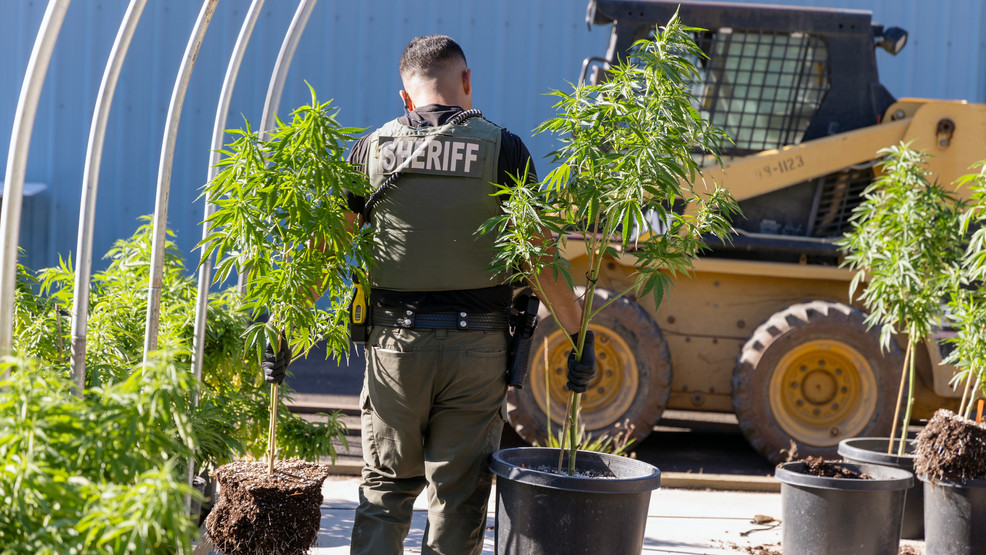ROSEBURG, Ore. — A bill recently passed through the Oregon senate aimed at increasing penalties for landowners with illegal cannabis grows across the state, limiting further crimes such as water theft and human trafficking.
The bill, known as SB 347 A, would end special tax assessment for a properties where owners are caught knowingly allowing illegal grows. A special tax assessment is an additional charge levied on property owners to help fund public projects, such as road repairs, sewer upgrades, or new sidewalks, that directly benefit their land.
“We came up with this concept in legislation to disincentive those farmland owners from allowing or accepting payment or leasing land or being more aware of what is going on, on their land, to discourage the grow of illegal cannabis in the state,” State Senator David Brock Smith said. “Those land owners need to be better stewards of their land and knowing what they’re allowing to be grown on it. It is their responsibility and this [bill] just puts that into the forefront for them to take responsibility of that land that they own.”
Douglas County Commissioner Chris Boice aided in the efforts of producing SB 347 A along with the Oregon Farm Bureau.
Boice agrees with the importance of responsibility to landowners, saying that the illegal cannabis grows lead to more crimes.
“There’s a whole bunch of things related to illegal marijuana growing that aren’t good, including the use of pesticides and herbicides and fertilizers and things next to the river that’s completely unregulated,” Boice said. “Human trafficking, the living conditions that these folks are subjected to when they’re working on these operations and the mess that’s left behind when they either pack up and move on or they get busted. None of it is any good.”
The human labor and trafficking aspect is a big factor for Douglas County when dealing with the illegal grows.
The county’s human trafficking task force released the following statement:
There is no way of knowing the exact number of human trafficking victims at illegal grow sites, but believes it is present in every county within Southern Oregon, according to the task force.
SB 347 A now moves to the House of Representatives for a vote.
A bill recently passed through the Oregon senate aimed at increasing penalties for landowners with illegal cannabis grows across the state, limiting further cri Read More


